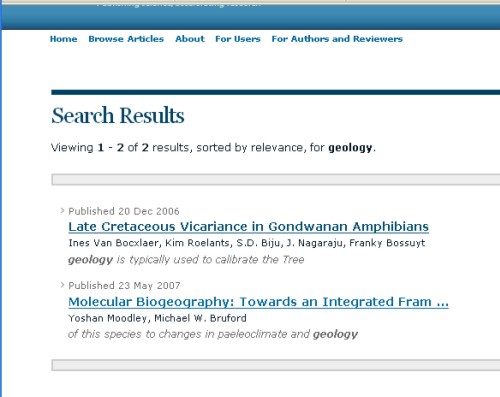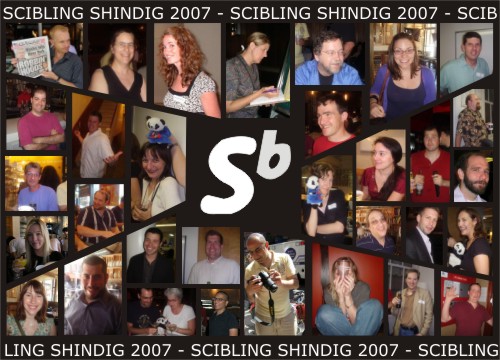I tempered the other week’s repost on some rather impressive 1.5 billion year-old black smoker chimneys, and the fossilised microbes found within them, with some words of caution about the ‘clues to the origin of life’ spin that the discovery was being given:
the first evidence of life in the geological record comes in beyond the 3.5 billion year mark, meaning that there is more distance between the first replicating organisms and these black smoker microbes as there is between the black smoker microbes and us.
In other words, the scientists who speculate on a possible connection between hydrothermal vents and the earliest life are doing just that – speculating – until they find much older equivalents of the Chinese palaeo-smokers, and fossil microbes associated with them. Unfortunately for them, such things are rather hard to come by. Hydrothermal systems are most commonly found in oceanic crust, usually associated with mid-ocean ridges, and most oceanic crust gets subducted after a few hundred million years rather than hanging around for billions like continental crust can.
It seems strange, then, that no sooner does one report of an ancient hydrothermal system appear in the literature, than another one shows up just behind it, courtesy of PhD student Lawrence Duck and his colleagues (including Suzanne Golding) at the University of Queensland. Their study of 3.24 million year-old massive hydrothermal deposits on the Pilbara craton in western Australia provides strong evidence for a flourishing bacterial ecosystem around hydrothermal vents almost 2 billion years further back in Earth’s past.
Continue reading →





Nice plan for content warnings on Mastodon and the Fediverse. Now you need a Mastodon/Fediverse button on this blog.